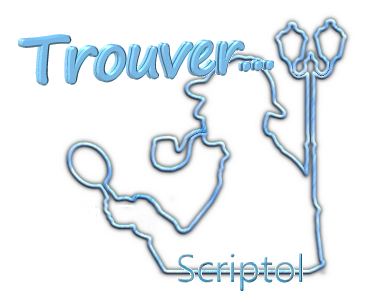How to find information on the web
There is more than one answer to the most important question an Internet user can ask. The search engine query is not the only one. Let me detail how to find information online, knowing that webmasters on their side are doing their best to ensure that the information they provide has the highest probability of being found by those who are interested in it.

Search engines
You can find a phrase in the text, among 100 billion indexed pages, using the main search engines, Google, Bing, Yahoo, just put the phrase in quotes in the search! Otherwise, the search is carried out according to the list of keywords that are provided, according to the logical simplified search: + for the combination, - for exclusion. The AND and OU statements are used in advanced search.
Google can return pages that do not contain the requested words: these words actually appear in links that point to the page, so this one, no matter what, is related to the topic.
Question sites

To get an answer, why don't you just ask a question? On these sites, not robots will answer the question, but volunteers, and the site chooses the best answer - the one that users plebiscite. There is never enough personnel to answer, volunteers find profit in this in different ways. This can be an opportunity to sometimes provide the address of your site.
The moderator was an internal Google tool that the company decided to share with Internet users and which allows you to promote issues on the Web.
The site was originally used by the company to communicate with webmasters, then it abandoned the tool and focused on Google +, which it wants to promote with all kinds of services for Internet users.
This tool can be very useful for webmasters, indeed, the route of questions on various topics allows you to find out what interests Internet users the most, what they would like to find answers to. Something more explicit than the popularity of keywords, and what they can rely on when developing the content of their site.
There are two ways to participate in this social site:
- Vote for a question submitted by an Internet user.
- Ask yourself a question on the site .
A very simple interface allows you to vote: put a point by clicking on the "tick" symbol or say that you do not like the question by clicking on the cross. The box on the left is a measure of the number of votes that is displayed when the mouse passes.
This service can run on the App Engine as a social network web service if you want to create your own version. But Google no longer provides API software, so an equivalent open-source project needs to be addressed. Question2answers specifically, it already works on so many sites, open or private. Indeed, such a tool is well suited for an enterprise, or a team, to put forward questions that people ask.
Also, quite close services can be found in StackOverflow, which specializes in programming and StackExchange, more generally.
Answers.com seems to be using a classic search engine with only 4 million pages (versus the 1,000 billion URLs identified for Google), but with software to launch a search when you click on a word.
Quora is newer and requires registration to access the site. Its use is easier, but the level may be higher than that of Ansvers.
For a specific issue, information, what experience requires, forums bring unprecedented wealth. Search engines include forum content, and direct access to forums is an addition when engines cannot associate a question with an answer.
News sites and bookmarks
The principle of digg-likes is to associate a score with each article. It is visitors who, by clicking on the image, give points to mark their interest, and thus attract the attention of other visitors.
They are so named because Digg popularized the idea, which contributed to his condition, and others have since followed. CMS like Wordpress allow any webmaster to create their own digg like, and they actually created almost a new one for themselves every day until 2011, when Panda Update, sanctioning sites without original content, ended this trend! Most such sites have since been shut down.
Another idea is to share your bookmarks with Internet users. Instead of saving our list of favorites in a browser, we manage it on Delicious or Stumpleupon, the rest have access to it and can open sites, as you can take advantage of the discoveries of others yourself. A relational network is created, you enjoy what another Internet user notes, add it to your friends list... Twitter and Facebook are gradually replacing these sites.
Replacing Queries with Idea Associations
Sometimes it is difficult to find information about engines, although we know that it exists, because we cannot formulate a request in such a way as to direct the engine to what it wants. In this case, other sites can help.
On Soovle, all terms associated with this word are displayed as links. Links are actually queries on the Bing engine.
Uber Impest is a similar tool, but we also choose the location and type of search: web, images, videos, etc. But this time you are not redirected to the engine, when you click on the term, a tree opens in the list of additional words. By opening consecutive trees, you can define a complete query step by step that exactly matches what you need to know.


